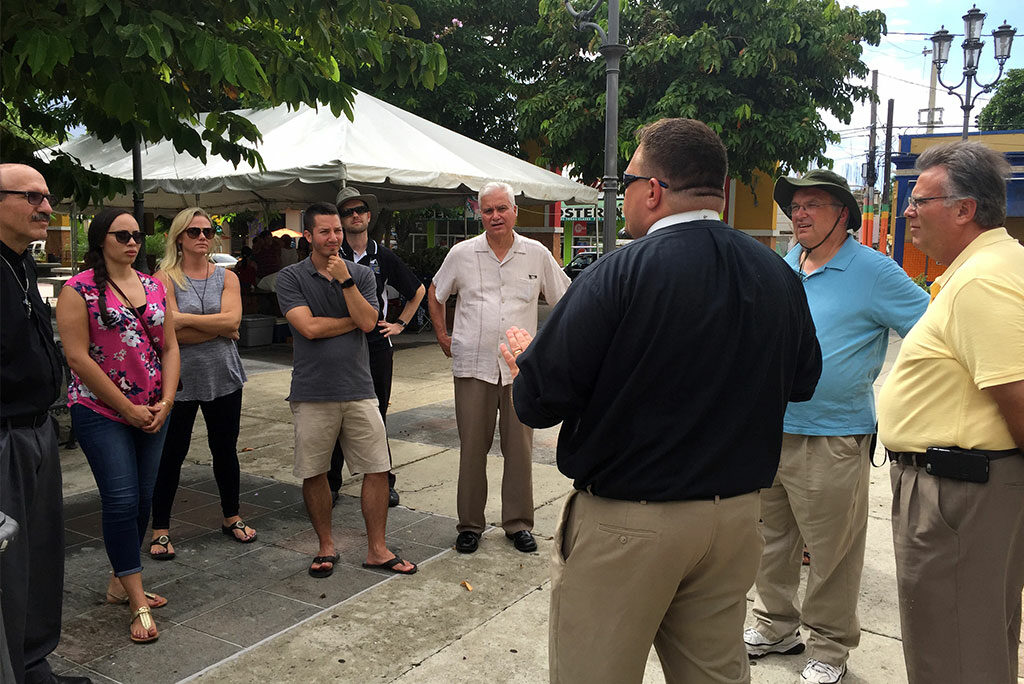
By Pamela J. Nielsen
ST. LOUIS — At its Feb. 2-3 meeting, the LCMS Board for International Mission (BIM) extended calls to two career missionaries for service in the Gambia and Belize and issued seven solemn appointments to new GEO (Globally Engaged in Outreach) missionaries who will work alongside career missionaries for up to two years in Eurasia, Asia and Latin America.
The board also extended a call for a teacher to serve at Concordia International School Shanghai and endorsed a pastor for service as a chaplain in the U.S. military.
Synod President Rev. Dr. Matthew C. Harrison provided a mini state-of-the-Synod report in which he presented his chief concern — the Synodwide financial challenges and the impact they have on LCMS mission and ministry work, including missionary funding. “We have 40 missionaries coming home for fundraising [this summer],” said Harrison. “The church needs a big push to support them.”
Harrison encouraged the board as he spoke about global mission efforts and the “enormous and growing” worldwide influence of the LCMS.
“Internationally, we are doing the best mission work we’ve ever done,” Harrison told the board, “but [we are] under the cross with financial challenges.”
The recently published LCMS demographic study and report was a significant topic for the president and the board.
“Demographers have told us we’ll lose another half-million people before the church grows again in numbers,” Harrison said, emphasizing that in spite of these statistical facts, “we have to plant churches, do evangelism, engage in outreach and revitalize [congregations].” He underscored that the Synod is already doing these things with a team of ministry leaders moving forward and a growing collection of resources designed to assist the local parish and pastors.
Hands-on work
The Rev. John Fale, executive director of the Office of International Mission (OIM), spoke about the blessings and advantages in the LCMS by being involved in hands-on mission work. “Districts, congregations and mission societies want to be involved in meaningful work,” he said, explaining that these groups want to provide input for the work and often have significant funds and expertise to support that work.
“In certain mission fields, a ‘FORO’ model will allow us to do that,” said Fale, who explained a partnership model that has been increasingly successful in the Latin American region. A FORO — from the Latin “forum,” a public gathering for the exchange of ideas and open discussion — involves bringing together interested partners to provide expertise, ideas and resources coordinated through LCMS missionaries in a specific country or region. Fale noted that this involves “yielding some local control and inviting others to the table.”
The FORO model can be adapted and pursued in other regions. “It can be done and has to be done,” said Fale.
He also addressed a recurring challenge for the BIM and missionaries on the ground. He noted how districts, congregations and various mission societies sometimes engage in mission work in the very places LCMS missionaries are serving, with little-to-no mutual coordination or cooperation with the OIM. In such instances, Fale said, efforts may be unnecessarily duplicated, finances wasted and relations with LCMS partner church bodies damaged.
The board heard a report from the Rev. Craig Muehler, director of LCMS Ministry to the Armed Forces. Muehler described his work as focused on recruitment of and support for chaplains. “We provide over-watch for our chaplains with the Department of Defense,” said Muehler, describing increasingly difficult and time-consuming challenges as the military succumbs to a culturally liberal agenda that embraces same-sex marriage and transgenderism as protected classes and challenges the religious liberty of chaplains and troops they serve.
“I do this so the chaplains can do their jobs,” said Muehler. “They are glad to know that at every level their church has their back.”
Following a tutorial on the process to become a military chaplain, the board approved the name of a pastor put forth by Muehler for endorsement as a military chaplain.
Pinpointing support
The board heard a presentation from Mark Hofman, executive director for LCMS Mission Advancement, who presented a series of U.S. maps indicating the location of Synod congregations and individuals who are supporting LCMS mission-and-ministry efforts around the world. Hofman discussed what his team is learning from this data and how they aim to use it to increase Synodwide support for missionaries and mission projects.
The board spent the second day of their meeting reviewing policies.
BIM Chairman Rev. Bernie Seter reflected on the meeting.
“Our new board is getting to know one another as we wade into the vast amount of work in which the OIM is engaged,” Seter said.
Encouraging ‘ambassadors’
He pointed out how veteran board members encouraged new members to be ambassadors for the OIM in any way that they can.
“Our fourth [Synod] mission priority is that we will ‘collaborate with Synod’s members and partners to enhance mission effectiveness,’ ” said Seter, who noted that board members should be willing to visit congregations and other mission organizations within the LCMS “to relate the work of OIM and gain support for the multitude of things our church is doing on their behalf around the world.”
Those interested in learning more about the mission work of the LCMS are encouraged to check out the website lcms.org/missionaries and request copies of the OIM’s International Mission — Your Guide to Our Work in the World.
Deaconess Pamela J. Nielsen (pamela.nielsen@lcms.org) is associate executive director of LCMS Communications.
Posted February 28, 2017




